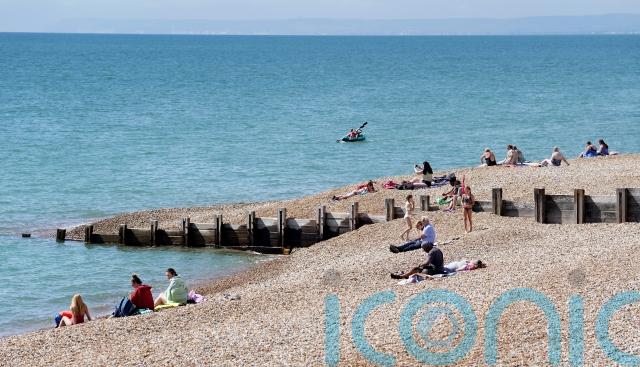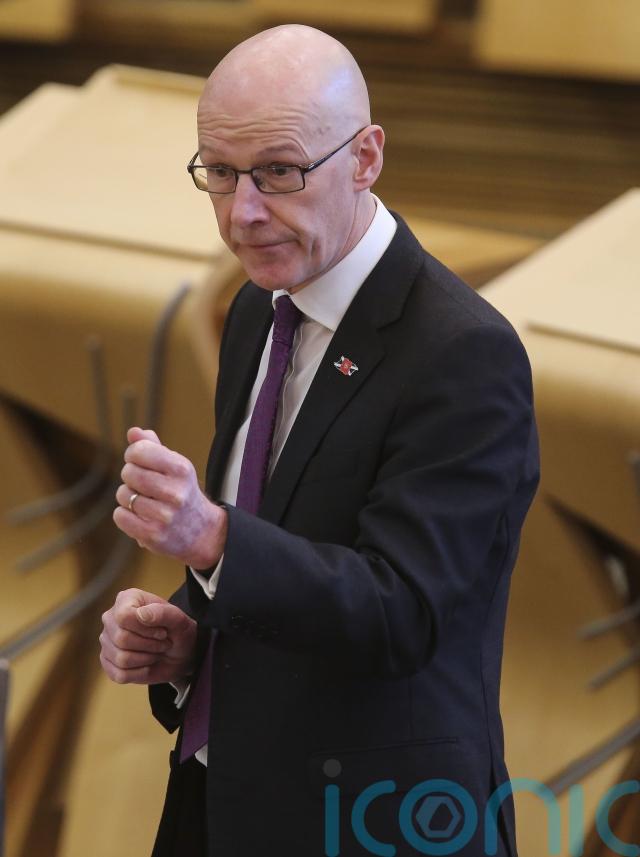
Scotland’s onshore GDP fell by 0.2% in July, according to the latest estimates from the Scottish Government.
The decline comes after a fall of 0.8% in June and means GDP is just 0.1% higher than the pre-pandemic level in February 2020.
GDP growth during the second quarter of 2022 is estimated to have been flat at 0%.
The latest figures show output in the services sector, which accounts for about three-quarters of the economy, is estimated to have fallen by 0.3% in July.

Consumer-facing services grew by 0.3%, but this was offset by larger declines in other parts of the service economy.
The decreases were led by a 3.7% fall in professional, scientific and technical services output.
Output in production, construction and agriculture grew by 0.1% in July.
This includes growth of 2.5% in the water and waste management industry, rebounding after a sharp fall in June of 2.1%.

The monthly Scottish Government report noted the warm weather in July may have had an impact on the economy.
It said: “The heat seems to have had an effect on the UK economy, with the weather being reported as a reason for increased turnover in ice cream manufacturing, amusement parks, golf clubs, maintenance and repair of vehicles, boat hire, marquee hire, lidos and outdoor pools, wholesale of water coolers, wholesale of fruit and the provision of courier services, where increased deliveries of summer clothing and fans were reported.
“UK-wide respondents also reported staff shortages as being an issue. Hotels and hospitality services were particularly badly affected, but comments were also received from manufacturers of health and beauty products, sheet metal fabricators, haulage companies, solicitors, and cleaning companies.”
Commenting on the figures, Deputy First minister John Swinney said: “These figures show the extremely challenging economic conditions which are significantly hampering businesses’ ability to recover following the pandemic.
“The Scottish Government is doing everything within our powers to support people, business public services and the economy during this cost of living crisis, however, these efforts are threatened by the UK Government’s dangerous gamble on public finances and the health of our economy.
“Following the UK Government’s mini-budget, the pound fell to record lows on Monday, the cost of government borrowing has risen to its highest for over a decade and investor confidence is plummeting.
“The IMF’s warning over UK Government tax plans is stark and highlights the folly of the decision, while increasing the pressure on UK Ministers to reverse their proposals on tax.”
He continued: “I will outline our response in an emergency budget review next month but most economic levers remain with the UK Government.
“We are in regular dialogue with business organisations and leaders and support their calls for UK ministers to reduce VAT rates and respond to staff shortages.
“Scotland’s and the UK’s economy, businesses and households will suffer without urgent action.”
Subscribe or register today to discover more from DonegalLive.ie
Buy the e-paper of the Donegal Democrat, Donegal People's Press, Donegal Post and Inish Times here for instant access to Donegal's premier news titles.
Keep up with the latest news from Donegal with our daily newsletter featuring the most important stories of the day delivered to your inbox every evening at 5pm.